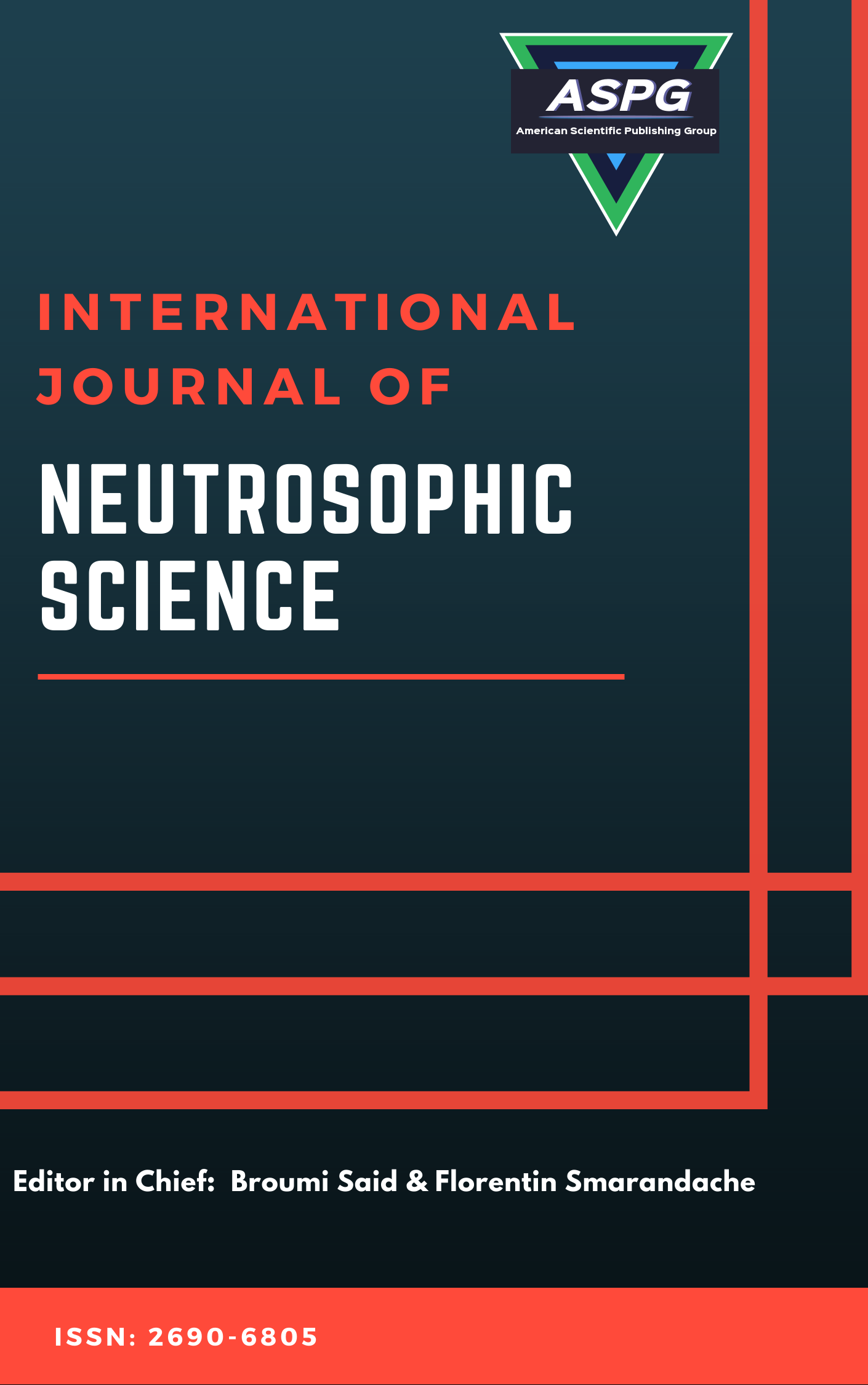

Volume 18 , Issue 3 , PP: 227-237, 2022 | Cite this article as | XML | Html | PDF | Full Length Article
Mohammed I. Alghamdi 1 *
Doi: https://doi.org/10.54216/IJNS.1803020
Sentiment analysis (SA) is mainly employed to investigate the polarity of the sentiment existent in a content. It assist in understanding the opinions or feelings expressed by people. It find useful in several application areas such as e-commerce, education, etc. Natural language processing (NLP) and machine learning tools can be employed for SA. In this view, this study develops a Single Valued Neutrosophic Sets with Optimal Support Vector Machine (SVNS-OSVM) model for SA. The major intention of the SVNS-OSVM model is to identify the existence of sentiments exist in the data. The SVNS-OSVM model initially performs data pre-processing to transform the input data into a useful format. In addition, SVNS model is applied to derive word embeddings. Then, SVM model is applied for the detection and classification of sentiments. At the last level, the improved particle swarm optimization (IPSO) algorithm is used to fine tune the parameters involved in the SVM model. For ensuring the improved outcomes of the SVNS-OSVM model, a wide range of simulations were performed and the results are inspected under several aspects. The comparative study highlighted the betterment of the SVNS-OSVM model compared to recent approaches.
Sentiment analysis , Classification , Machine learning , Neutrosophic Sets , Support Vector machine.
[1] Yadav, A. and Vishwakarma, D.K., 2020. Sentiment analysis using deep learning architectures: a
review. Artificial Intelligence Review, 53(6), pp.4335-4385.
[2] Dang, N.C., Moreno-García, M.N. and De la Prieta, F., 2020. Sentiment analysis based on deep
learning: A comparative study. Electronics, 9(3), p.483.
[3] Mishev, K., Gjorgjevikj, A., Vodenska, I., Chitkushev, L.T. and Trajanov, D., 2020. Evaluation of
sentiment analysis in finance: from lexicons to transformers. IEEE access, 8, pp.131662-131682.
[4] Jiang, Q., Chen, L., Xu, R., Ao, X. and Yang, M., 2019, November. A challenge dataset and effective
models for aspect-based sentiment analysis. In Proceedings of the 2019 Conference on Empirical
Methods in Natural Language Processing and the 9th International Joint Conference on Natural
Language Processing (EMNLP-IJCNLP) (pp. 6280-6285).
[5] Jindal, K. and Aron, R., 2021. A systematic study of sentiment analysis for social media data. Materials
today: proceedings.
[6] Phan, M.H. and Ogunbona, P.O., 2020, July. Modelling context and syntactical features for aspectbased
sentiment analysis. In Proceedings of the 58th Annual Meeting of the Association for
Computational Linguistics (pp. 3211-3220).
[7] Mitra, A., 2020. Sentiment analysis using machine learning approaches (Lexicon based on movie
review dataset). Journal of Ubiquitous Computing and Communication Technologies (UCCT), 2(03),
pp.145-152.
[8] Oueslati, O., Cambria, E., HajHmida, M.B. and Ounelli, H., 2020. A review of sentiment analysis
research in Arabic language. Future Generation Computer Systems, 112, pp.408-430.
[9] Hasan, A., Moin, S., Karim, A. and Shamshirband, S., 2018. Machine learning-based sentiment
analysis for twitter accounts. Mathematical and Computational Applications, 23(1), p.11.
[10] Habimana, O., Li, Y., Li, R., Gu, X. and Yu, G., 2020. Sentiment analysis using deep learning
approaches: an overview. Science China Information Sciences, 63(1), pp.1-36.
[11] Yang, L., Li, Y., Wang, J. and Sherratt, R.S., 2020. Sentiment analysis for E-commerce product
reviews in Chinese based on sentiment lexicon and deep learning. IEEE access, 8, pp.23522-23530.
[12] Phan, H.T., Tran, V.C., Nguyen, N.T. and Hwang, D., 2020. Improving the performance of sentiment
analysis of tweets containing fuzzy sentiment using the feature ensemble model. IEEE Access, 8,
pp.14630-14641.
[13] Basiri, M.E., Nemati, S., Abdar, M., Cambria, E. and Acharya, U.R., 2021. ABCDM: An attentionbased
bidirectional CNN-RNN deep model for sentiment analysis. Future Generation Computer
Systems, 115, pp.279-294.
[14] Garcia, K. and Berton, L., 2021. Topic detection and sentiment analysis in Twitter content related to
COVID-19 from Brazil and the USA. Applied soft computing, 101, p.107057.
[15] Sharma, M., Kandasamy, I. and Vasantha, W.B., 2021. Comparison of neutrosophic approach to
various deep learning models for sentiment analysis. Knowledge-Based Systems, 223, p.107058.
[16] Zhou, J., Qiu, Y., Zhu, S., Armaghani, D.J., Li, C., Nguyen, H. and Yagiz, S., 2021. Optimization of
support vector machine through the use of metaheuristic algorithms in forecasting TBM advance
rate. Engineering Applications of Artificial Intelligence, 97, p.104015.
[17] Qin, T., Guo, J., Jing, Z., Han, P. and Qi, B., 2021. Hybrid IPSO-IAGA-BPNN algorithm-based rapid
multi-objective optimization of a fully parameterized spaceborne primary mirror. Applied
Optics, 60(11), pp.3031-3043.
[18] Sara Rosenthal, Noura Farra, and Preslav Nakov. 2017. SemEval-2017 Task 4: Sentiment Analysis in
Twitter. In Proceedings of the 11th International Workshop on Semantic Evaluation (SemEval-2017),
pages 502–518, Vancouver, Canada. Association for Computational Linguistics.
[19] Sharma, M., Kandasamy, I. and Vasantha, W.B., 2021. Comparison of neutrosophic approach to
various deep learning models for sentiment analysis. Knowledge-Based Systems, 223, p.107058.